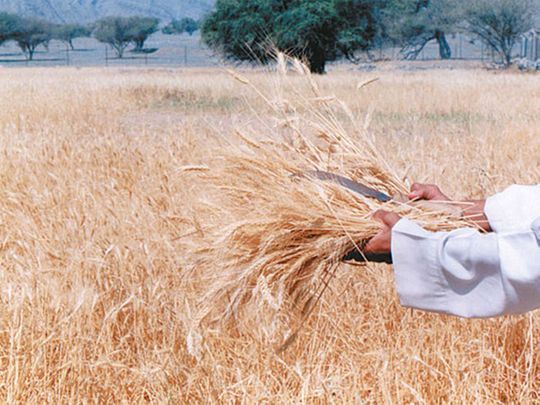
Dubai: Saudi Arabia has reassured its people that there is no crisis of grain supplies in the Kingdom, local media reported.
According to Zaid Al Shabanat, deputy governor of the Saudi Grains Organisation (SAGO), the Kingdom is facing no crisis in grain supplies.
While attending a programme titled “In the open” on the Saudi Television channel, Al Shabanat said stocks were plentiful in the Kingdom as SAGO’s strategy relies on sourcing grain from multiple countries and continents and not relying on a single source.
The SAGO chief made the remarks while reacting to questions about the impact of the war in Ukraine on the Kingdom’s grain supplies. He stated that there are sufficient quantities of grain stocks available in the Kingdom and that the percentage of grains the Kingdom imports from Russia and Ukraine can be compensated from other sources of supply, whether from North America, South America or Europe.
Al Shabanat stated a contract had been signed last month to make available large quantities of grain, which will be in the Kingdom’s markets during the fourth quarter of this year. “The Kingdom has also succeeded in overcoming the impact of the coronavirus pandemic, which was greater than the impact of the Russian-Ukrainian crisis,” he added.
Meanwhile, Oman also affirmed it currently has sufficient quantity of wheat in stock to sustain until the end of this year after India, the world’s second largest producer of wheat, banned all exports with immediate effect after a heatwave affected the crop, a top official of Oman Flour Mills Company (OFMC) said.
“Two shipments of wheat arrived from India and the third shipment will arrive shortly. Apart from that, we also have regular shipments coming from Australia and these stocks are sufficient until the end of this year,” said Haitham Mohamed Al Fanna, CEO of Oman Flour Mills Company in an interview.
On May 13, India banned export of all wheat, including high-protein durum and normal soft bread varieties. The Indian government said that the move was being made to manage the overall food security of the country and to cater to the needs of the neighbouring and other vulnerable countries.












